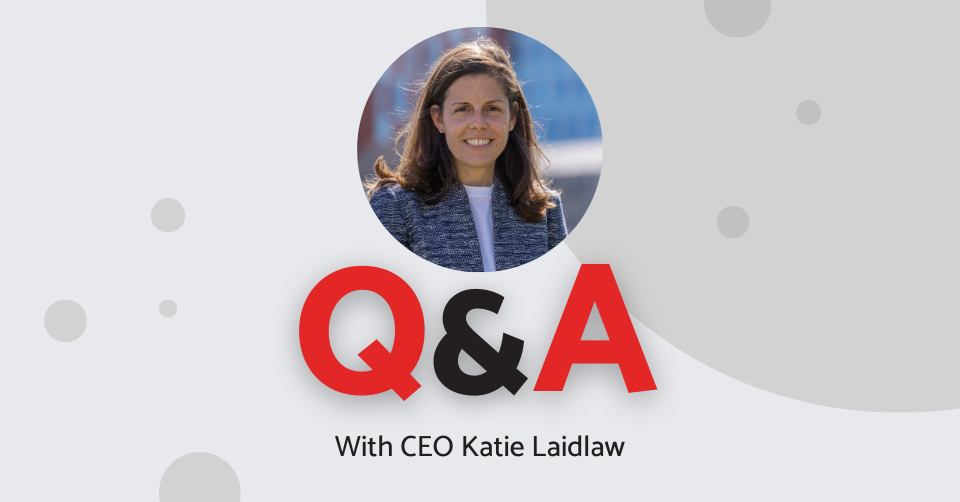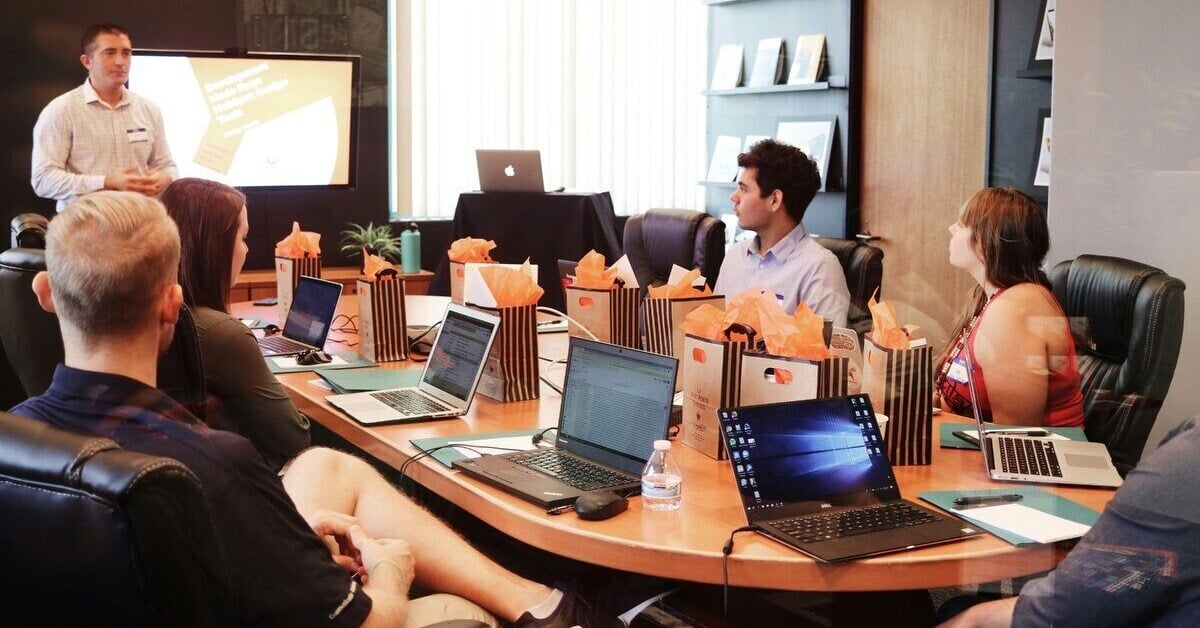Impact of Gen AI on L&D and Talent - An Interview with Katie Laidlaw

The pervasive nature of generative AI has made it one of the hottest topics of 2023. An interview with ETU’s CEO, Katie Laidlaw, captures our point-of-view on how AI could affect the market, our customers, and our product.
.png?width=50&height=50&name=Q-icon%20(2).png) AI is seemingly everywhere, and there could be hundreds of applications for it within L&D and Talent organizations. What are you hearing about AI from ETU customers? What clear benefits are being envisioned in the short term?
AI is seemingly everywhere, and there could be hundreds of applications for it within L&D and Talent organizations. What are you hearing about AI from ETU customers? What clear benefits are being envisioned in the short term?
![]() Yes, it really is everywhere – AI is a regular part of our conversations. Recently, I had the chance to participate in a gathering of learning & talent leaders across a range of industries, hosted by The Learning Forum. AI was a prominent part of the agenda where the conversation revolved around a few AI common themes:
Yes, it really is everywhere – AI is a regular part of our conversations. Recently, I had the chance to participate in a gathering of learning & talent leaders across a range of industries, hosted by The Learning Forum. AI was a prominent part of the agenda where the conversation revolved around a few AI common themes:
- Speed of AI adoption: We’re in the early days of exploration, but the velocity at which generative AI has become a mainstream topic has raised as many questions on how to approach it and how to evaluate AI benefits.
- Permissioning and data protection: Companies are across a continuum of encouraging experimentation while at the same time showing concern for the risks of data over-sharing or employee engagement with generative AI platforms and tools. This was reflected in a range of choices companies are making in terms of permissioning, as well as internal policies and how to educate on those.
- Upskilling in AI skills: We discussed the need to build awareness, skills and expertise on the uses of generative AI across all levels of the company and within these industries.
- Huge amount of opportunity: One consistent comment highlights that the volume of possibility is sometimes overwhelming.
ETU customers are also bringing up AI in our regular conversations. Three areas we most often discuss are how AI will:
- Improve the learner experience
- Streamline content creation
- Enhance data insights on skills
Our customers are also considering how to enact data security and to be clear on company data protection. Protecting our own clients’ data is paramount for us at ETU always, and we’re even expanding ISO 27001 policies to our AI work and keeping proprietary data protected.
At ETU, we have been incorporating AI into our learning simulation platform for several years. With recent advancements in generative AI, we can take our exploration to the next stage, looking at new opportunities to improve learning effectiveness. We are focused on these most recent generative AI advances as the best bet for enhancing our platform.
Tell us more about how ETU is tapping into the power of Gen AI. How do you see it becoming a part of the company’s roadmap?
![]()
We recognize the momentum and power behind Generative AI. Early this year, we formed an internal team dedicated to innovation in learning as well as within our own product via Gen AI. We reviewed the latest research, engaged with our customers, and allotted significant resources to experiment with what’s possible.
Our Gen AI team went through a structured exercise to capture all the areas where Generative AI could be applied to our learning simulation platform. We narrowed down our long list of possibilities to two areas where enhancements could have the most impact:
- accelerating simulation build time
- voice interactions within our simulations
I’m proud to report that we’ve just completed phase one of prototype upgrades to our platform in both areas.
What have you learned from that rapid Gen AI prototyping ETU just completed?
![]() Our prototyping experiments were a terrific exercise for our internal team. We now also have a few guiding principles that have crystalized as we embrace Gen AI within ETU:
Our prototyping experiments were a terrific exercise for our internal team. We now also have a few guiding principles that have crystalized as we embrace Gen AI within ETU:
- Protect client data: Expand our own ISO 27001 policies to our Gen AI work and keep proprietary data protected.
- Experiment and iterate: Prioritize initial projects that can be done quickly. Seek rapid customer feedback and iterate rapidly.
- Be AI-agnostic: Keep the platform independent of a specific LLM and instead design for future client models.
- Use AI to assist humans: Generative AI is powerful but early in maturity. Empower humans with Gen AI for better outcomes.
We are applying these guiding principles against three main focus areas where we see great potential for Gen AI within L&D: content creation, learner experience, and learner analytics. We focused our prototyping against those areas and are excited to progress forward.
What’s your prediction for how quickly Gen AI will take hold?
![]() If you had asked me that question at the end of last year, I would have answered very differently from my answer today. Gen AI is taking hold at lightning speed. What would have been on our product roadmap for several years out, given development time and tooling enhancement, is now possible because of Generative AI.
If you had asked me that question at the end of last year, I would have answered very differently from my answer today. Gen AI is taking hold at lightning speed. What would have been on our product roadmap for several years out, given development time and tooling enhancement, is now possible because of Generative AI.
Any advice for others based on your Gen AI journey so far?
![]() Choose initial projects that can be done quickly (ideally within 6-12 months) and have a high chance of success. Instead of doing only one pilot project, choose two to three to increase the odds of creating at least one significant success. This is the process our internal Gen AI team has followed, and the outcomes have filled me with optimism about the power Gen AI will have for ETU and our customers.
Choose initial projects that can be done quickly (ideally within 6-12 months) and have a high chance of success. Instead of doing only one pilot project, choose two to three to increase the odds of creating at least one significant success. This is the process our internal Gen AI team has followed, and the outcomes have filled me with optimism about the power Gen AI will have for ETU and our customers.

